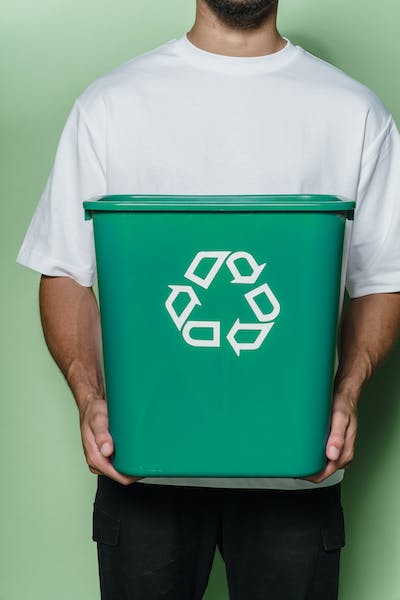Prior to now, we have written several articles on recycling, addressing several areas of the subject. It is on this account that we consider it necessary to shed light on the problems with recycling.
Of course, while we constantly encourage that items should undergo both recycling or upcycling to reduce the wastes around us.
It is also pertinent to note, that recycling also have its downsides.
Therefore, in this article, we will be looking at the problem associated with recycling, weigh it advantages and disadvantages to help guide our choices.
Types of Recycling
Since, recycling involves converting waste materials into new materials, items or objects. This process usually includes an industrial process of recovering energy from waste materials.
The recyclability of a material depends on its ability to reacquire the properties it had in its original state.
The basic phases in the process begin with the collection of used unwanted materials, their reproduction into new products, and the purchase of those products, which may themselves be recycled.

There are two broad types of recycling operations and these are;
(I). internal
(ii). external
Internal recycling actually entails the reuse in a manufacturing process of materials that are a waste product of that process. This is common in the metals industry.
Another example is in the distilling industry, in which, after the distillation, spent grain mash is dried and processed into an edible foodstuff for cattle.
External recycling involves the reclaiming of materials from a product that is worn out or considered unfit. An example – is the collection of old newspapers and magazines for repulping into new paper products.
The Problems Associated with Recycling
Recycling serve as substitutes for raw materials obtained from increasingly scarce natural resources to make new products.
It also help reduce the quantities of solid waste deposited in landfills.
It also reduces pollution (air, water, and land) resulting from waste disposals.
The Disadvantages of Recycling
While recycling is encouraged and thought to be a solution to the plastic waste issue plaguing our oceans, air and soil.
It has numerous challenges and faced by the recycling industry that individual consumers can alleviate.
Some of the problems with recycling are ;
1. Poor recycling quality due to lack of education:
Most people know that recycling is a good for the environment, but are not trained to know what or what not goes into the recycling bin.
This leads to: Non-recyclable materials and contaminants entering the recycling bin and compromising recycling machinery.
2. Safety for workers
Working in the waste/recycling industry comes with lots of safety risks such as:
- chemical exposure
- combustible dust explosions
- exposure to powerful equipment with moving parts
- machine guarding hazards
3. Expensive or inadequate services: For an effective recycling system, a city should have adequate services (like separate bins and safe recycling centers).
Some cities don’t have the resources or the government support to provide these compatible recycling services.
4. Low market demand for recycled materials
Recycled materials have low demand, as oftentimes it is like buying second-hand at full price.
However, the industry is seeing a rebound in the value for recycled content in production and packaging.
Also, several global economic factors are supporting a rise in demand for recycled feed stock, leading to a larger need to invest quality materials back into the circular economy.
5. High Capital Costs
Recycling is expensive and takes lots of money, to build new waste recycling unit and buying different kinds of utility vehicles, standardizing the recycling unit, waste, and chemical disposal.
Also, training the locals by initiating useful programs and seminars where necessary.
6. Recycling Sites Are Always Unhygienic, Unsafe and Unsightly. This provides a breeding ground for disease-causing microorganisms and spread of infectious diseases.
It poses health risks for dedicated individuals responsible for recycling these waste products. Also, when these waste products come into contact with water, it forms leachate that pollutes water bodies, including drinking water.
7. Methane is a GHG( green house gases) and it is one of the gases released during recycling, that depletes the ozone layer.
Meaning if this gas isn’t properly controlled to prevent leakage, it can amplify global warming, ruining the idea of using recycling to conserve our environment.
8. Revenue loss
Governments providing tax subsidies to recycling plants lose billions of dollars in revenue. This is a significant amount, considering that this is only one of the many aspects that need to be considered to maintain a healthy environment.
Conclusion
Having weighed the problems with recycling, you can wisely take significant steps involved in the recycling process.
With knowledge that, the effects of recycling is vital to a larger degree that, if carried out effectively, it can bring immeasurable benefits to the environment and humans.
